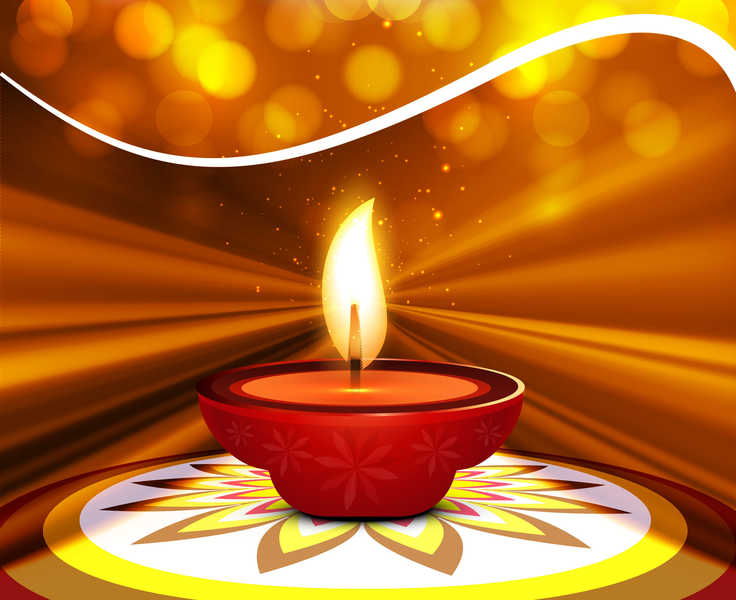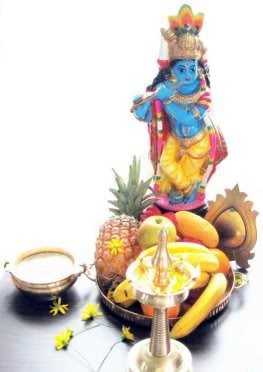Diwali a multi cultural festival of India
 Diwali, a festival of unity in diversity.
Diwali, a festival of unity in diversity.
Every festival is celebrated with much fan-fare and grandeur bringing together people from across cultures. ‘Diwali’ is celebrated in most parts of the country, but it is known by different names like Diwali or Deepavali in different regions.
Diwali is the biggest and brightest of all Hindu festivals and is celebrated in several Indian states in an equally grand manner. The celebration and rituals performed differ from region to region within the country. The rituals of the festival stretch from one to five days depending on the region, and the main festival falls on a particular day. Diwali nicknamed as festival of ‘sweets’ as there are a lot of sweet dishes associated with Diwali season.
 Every year, the Diwali day depends on the arrival of the new moon. The festival is a celebration of victory of good over evil and light over darkness. On the Diwali day every home, shops and streets will be illuminated with lights. Scent of incense and sounds of fire crackers are all pervading during Diwali days. Dressed in new attires, people gather at homes to celebrate Diwali with lots of fire crackers, songs, gambling, merry making and sweets. The ‘lights’ of Diwali signifies the welcoming prosperity and the fireworks are intended to scare away the evil.
Every year, the Diwali day depends on the arrival of the new moon. The festival is a celebration of victory of good over evil and light over darkness. On the Diwali day every home, shops and streets will be illuminated with lights. Scent of incense and sounds of fire crackers are all pervading during Diwali days. Dressed in new attires, people gather at homes to celebrate Diwali with lots of fire crackers, songs, gambling, merry making and sweets. The ‘lights’ of Diwali signifies the welcoming prosperity and the fireworks are intended to scare away the evil.
Diwali Legend in Various States
In North India, Diwali commemorates the return of Lord Rama from his 14-year-long exile. For some North Indian states others it is dedicated to the worship of Mother Kali, the dark goddess of strength. It is also believed as a celebration of the marriage of Lakshmi with Lord Vishnu. For Jains, Deepavali is significant as Lord Mahavira’s attaining the eternal bliss of nirvana.
Diwali in North India
Diwali in North India is an occasion for exchanging gifts and having festive meals. In north India, there will be temporary stages in streets for holding ‘Ramlila’ (drama based on Ramayan stories). Houses will be decorated and Lakshmi puja will be performed by the women of the house. Women do “aarti” to their husbands, garland them and pray for their long life. In some states, there will be a ritual of immersing a silver coin in a tumbler of milk. This milk will be then sprinkled inside the rooms of the house.
Diwali in South India
Diwali has got a different perception in South India. In South, Diwali is celebrated in commemoration of the conquering of Asura Naraka, an evil king of Assam, by Lord Krishna. Houses after cleaning will be decorated with colourful rangoli patterns and pujas are performed after which the room will be arranged with betel leaves, betel nuts, fruits, flowers, sandal paste, kumkum, gingelly oil, turmeric powder, scented powder etc.
For South Indian Diwali is not coincided with the beginning of New Year. Lighting of lamps is not so much part of Diwali celebrations in South India. Deepavali celebrations in South start at early in the morning with the ritual of applying sesame oil on the heads of all the family members and a bath after that. New clothes, sweets and bursting of crackers, are all part of the celebration here also.
Traditionally, people celebrate Diwali by bursting fire-crackers. People used to gift clothes, jewellery and gold during the Diwali. Now a days, this has been majorly replaced with sweet boxes, chocolates, and electronic items, mobile or other home accessories.
‘Diwali’ is such a time, everyone loves to stay at home and celebrate with family, a small get-together or party can be arranged by inviting friends and family to home. The whole purpose of any festive celebration is to spread happiness and stay in touch with your friends and family.







